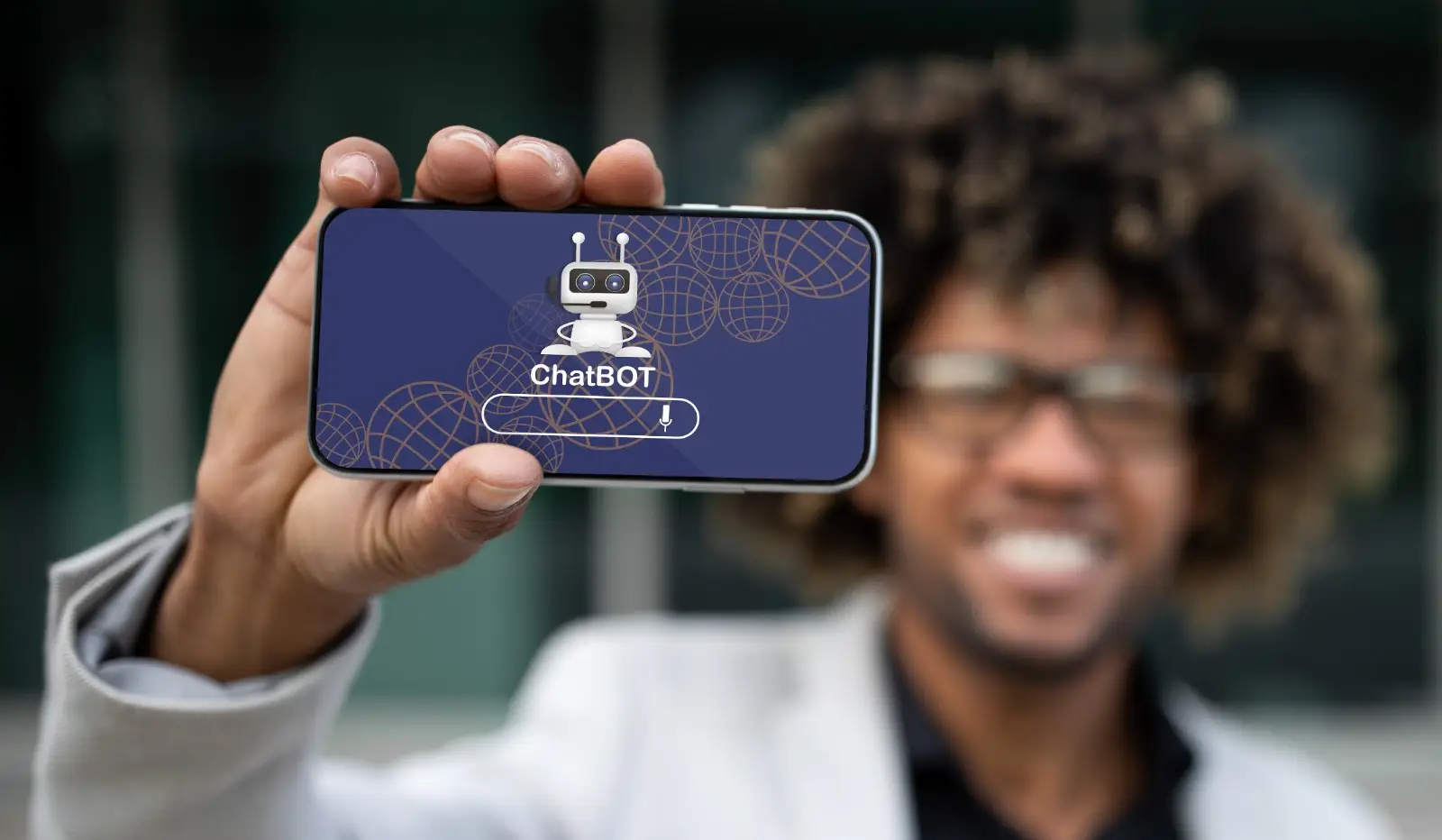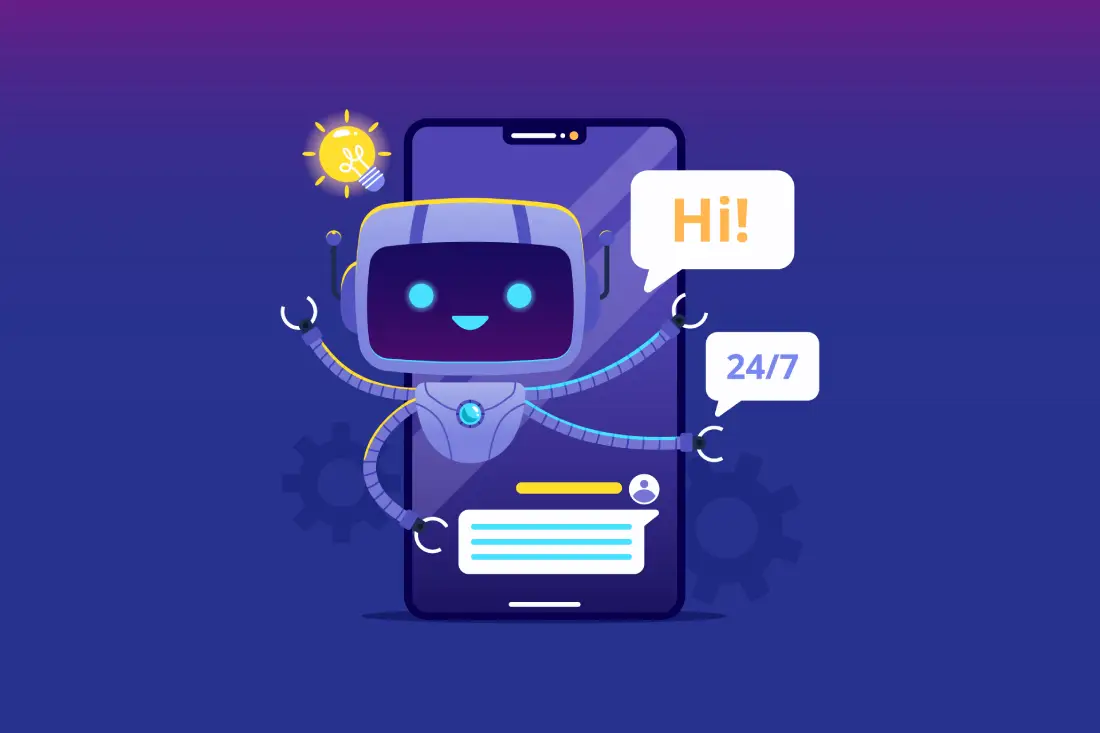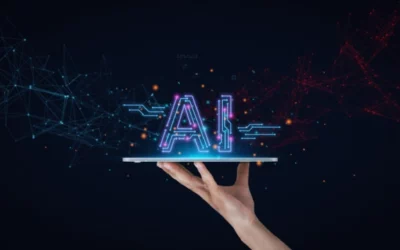As the popularity of social media platforms soared, so did the opportunities for businesses to reach out to their customers.
Chatbots have emerged as an innovative tool for businesses to tap into this trend, leveraging the power of conversation to build more meaningful relationships with customers on multiple marketing channels such as websites, messaging apps, and social networks.
The proof? There are now roughly 300,000 chatbots on Facebook Messenger.
So, in this blog, we delve into the power of chatbots in modern marketing, exploring how they’re taking the reins of customer interactions.
Understanding Chatbots in Marketing
Chatbots are software designed to simulate human-like interactions when engaging customers in a conversation. It functions based on predetermined conversation paths or utilizes artificial intelligence to discern user intent and provide relevant responses.
These interactions typically occur through messaging applications like:
- Facebook (Meta) Messenger,
- Slack,
- Skype, and
- voice-assisted platforms like Amazon’s Alexa.
For example, Facebooks’ Messenger, with its 1.3 billion monthly active users, offers an incredible opportunity for businesses to connect with customers on a platform they’re already using daily.
Similarly, chatbots on professional communication platforms like Slack and Skype can streamline workflows, answer queries, and even schedule meetings, providing value that goes beyond traditional marketing.
So, the significance of chatbots in marketing lies in their ability to automate and personalize customer communication, making them an integral tool for businesses aiming to enhance customer experience and engagement.
Comparing Chatbots to Traditional Marketing Channels
Unlike traditional marketing channels, which often involve one-way communication, chatbots allow for two-way interactions, creating a more engaging and personalized customer experience.
Chatbots are capable of simulating human-like conversations, making them highly effective at engaging customers.
Chatbots vs Email Marketing
Email marketing has always been a key player in the marketing world, offering a direct line of communication between businesses and consumers.
It excels in enrolling prospects, distributing content, and measuring campaign success.
On the other hand, chatbots engage users instantly and directly on platforms they use daily. The two-way interactions facilitated in real-time by chatbots mimic human conversation, leading to higher engagement and customer satisfaction levels.
SMS Marketing vs Chatbots
SMS marketing provides immediate, direct contact with customers.
However, while SMS offers immediacy and decent open rates, it lacks the rich content experience, conversational depth, and actionable insights that chatbots provide.
Chatbots not only engage users in meaningful conversations but also gather valuable insights from those interactions, which can be used to enhance future marketing efforts.
Additionally, the cost-effectiveness of chatbots makes them a more sustainable option for businesses looking to maximize their marketing ROI.
Social Media and Chatbots – Comparison
Social media has revolutionized how businesses interact and engage with their customers.
However, managing and responding to countless comments and direct messages can be time consuming and overwhelming. That’s where chatbots come in.
They can handle multiple interactions simultaneously, ensuring every customer query is addressed promptly.
Plus, with their ability to integrate with various social media platforms, chatbots extend your brand’s reach and improve overall customer engagement.
The Marketing Might of Chatbots
Chatbots have emerged as a force to be reckoned with in the digital marketing sphere.
Their unique capabilities offer businesses unmatched customer engagement and a wealth of actionable insights.
One key area where chatbots truly shine is in the realm of conversational marketing.
Conversational marketing enables businesses to establish a direct line of communication with their prospects, which leads to faster response times, increased engagement, and ultimately, more conversions.
By providing real-time interactions through email, chatbots, and SMS, marketers can engage with potential leads in a timely and personalized manner.
Capabilities of Chatbots in Marketing
Chatbots offer a multitude of advantages that can significantly enhance a brand’s marketing efforts, such as:
On-call always: 24/7 Customer Engagement
Customers expect immediate responses to their queries, regardless of the time of day. Chatbots, with their lightspeed response times, provide reliable after-hours support, ensuring that customer queries are addressed promptly and effectively.
This 24/7 availability enhances customer satisfaction and helps brands build stronger relationships with their customers.
Personalization at Scale
Personalization is key in today’s marketing world. By deep-diving into customer data analysis, chatbots can craft unique user journeys, delivering highly personalized experiences to each user.
Multilingual and Global Outreach
With the ability to converse in multiple languages, chatbots erase language barriers, enabling brands to engage audiences worldwide.
This multilingual capability allows businesses to expand their reach and connect with a diverse range of customers, fostering a truly global brand presence.
Chatbots: The Digital Persona of Brands
Many brands have successfully integrated chatbots into their brand narrative, leveraging their unique capabilities to create a seamless customer experience.
They can be programmed to reflect the brand’s tone of voice, language style, and core values, ensuring that every customer interaction is aligned with the brand’s identity.
This sentient representation of the brand allows for a more engaging and personalized customer experience, which can significantly enhance brand loyalty and customer satisfaction.
Real-world Applications of Chatbot Marketing
Consider the success story of HelloFresh, a popular meal-kit company. They utilized a chatbot as part of their digital marketing strategy to increase awareness about their products and provide personalized meal recommendations to customers.
The chatbot, equipped with extensive recipe and nutritional information, engaged customers in meaningful conversations about their dietary preferences and suggested suitable meal kits from the company’s range.
This strategy not only increased brand awareness but also led to a 36% increase in conversions, demonstrating the power of chatbot marketing.
Chatbots are not confined and they have been successfully employed in diverse settings.
For instance, a tech company called Vainu used a chatbot to enrich customer conversations, providing instant responses to queries and offering personalized product recommendations.
Conclusion: Harnessing the Chatbot Potential
The potential of chatbots, especially when paired with artificial intelligence and powered by natural language processing (NLP), which is the ability of a computer to understand human language, is immense.
These digital tools can revolutionize your marketing strategies, streamline customer interactions, and ultimately drive business growth.
Ready to experience the power of chatbots in your marketing channels?
Don’t wait for the future of marketing to come to you, step into it with Exceed AI and automate conversations across the revenue lifecycle.
Book a demo today to learn more about our innovative solutions and start your journey towards marketing excellence.




![Discover The Best Email AI Assistant [AI Unleashed]](https://exceed.ai/wp-content/uploads/2024/01/1_1-400x250.webp)
![The Power Of AI Sales Agents [Autonomous Reps]](https://exceed.ai/wp-content/uploads/2024/01/happy-sales-agent-smiling-400x250.webp)